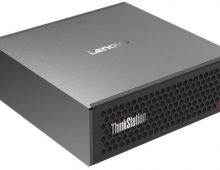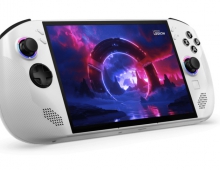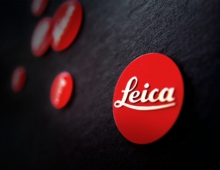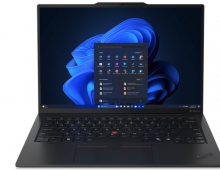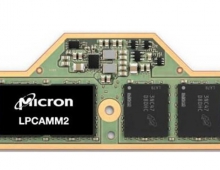
Lenovo Challenges HP's Lead in PC Market
Riding a strong surge in shipments, China's Lenovo in the third quarter jumped one rank to become the world's second-largest PC brand, surpassing Dell - and mounting the most serious challenge to HP's hegemony that the market has been seen in more than three years.
Lenovo's global PC shipments in the third quarter rose to 12.5 million units, up 14.5 percent from 10.9 million in the second quarter, according to the IHS iSuppli. This strong growth dramatically exceeded the growth of the overall PC market, which expanded by only 5.5 percent during the same period, causing Lenovo's share of global shipments to rise to 13.9 percent, up from 12.8 percent in the second quarter. Lenovo's performance also enabled it to rise from the third position to take the No. 2 ranking in the market, surpassing Dell.
With its strong performance, Lenovo managed to close its market share gap with No. 1-ranked HP to just 4.2 percentage points. This represents the closest any company has come to taking the lead position from HP since the second quarter of 2008 - more than three years ago - when Dell came within 2.7 percentage points of the perennial market leader.
"Lenovo continues to capitalize on strong demand for PCs in its home market of China," said Matthew Wilkins, principal analyst for compute platforms research for IHS. "While PC sales in the United States, Europe and many other regions are suffering because of weak economic conditions and rising competition from media tablets, desktop and notebook sales remain red hot in China. This is allowing Lenovo to outgrow it U.S. rivals - and putting it in position to contend with HP for market leadership."
Lenovo delivered sequential growth of 12 and 16 percent in its desktop and notebook PC shipments. Beyond its home-field advantage in China, Lenovo's performance was aided by its venture with NEC and the acquisition of Medion.
HP in the third quarter expanded its shipments by 5.9 percent to 16.3 million units, up from 15.4 million in the second quarter. This was roughly in line with overall industry growth.
Former HP chief executive Leo Apotheker in August said the company likely would spin off its PC division. Observers noted the company may have considered this move because it has faced slowing growth in the overall PC market, combining with dwindling profit margins amid tough competition from Asian rivals.
In October, new company chief Meg Whitman reversed this decision. However, this came after Apotheker's statement cast major uncertainty on the future of HP's PC business, causing the company's stock price to fall and resulting in the loss of some distribution deals in China.
Global PC shipments increased to 90.4 million units in the third quarter, up from 85.6 million in the second quarter. Shipments rose 2.6 percent compared to 88.1 million one year earlier, short of the IHS iSuppli forecast of 6.8 percent growth.
Asian-based PC makers, including Lenovo, also outperformed their top-tier U.S-based rivals in the third quarter.
Asustek Computer delivered the best performance among the Top 5 brands, with 36 percent sequential growth. Acer achieved the third-best results after Lenovo, with shipments increasing by 6.8 percent.
Outside of the Top 5, Apple and Samsung ? ranked seventh and eighth, respectively -also reported very strong year-over growth of 27 percent and 36 percent in the quarter.
With its strong performance, Lenovo managed to close its market share gap with No. 1-ranked HP to just 4.2 percentage points. This represents the closest any company has come to taking the lead position from HP since the second quarter of 2008 - more than three years ago - when Dell came within 2.7 percentage points of the perennial market leader.
"Lenovo continues to capitalize on strong demand for PCs in its home market of China," said Matthew Wilkins, principal analyst for compute platforms research for IHS. "While PC sales in the United States, Europe and many other regions are suffering because of weak economic conditions and rising competition from media tablets, desktop and notebook sales remain red hot in China. This is allowing Lenovo to outgrow it U.S. rivals - and putting it in position to contend with HP for market leadership."
Lenovo delivered sequential growth of 12 and 16 percent in its desktop and notebook PC shipments. Beyond its home-field advantage in China, Lenovo's performance was aided by its venture with NEC and the acquisition of Medion.
HP in the third quarter expanded its shipments by 5.9 percent to 16.3 million units, up from 15.4 million in the second quarter. This was roughly in line with overall industry growth.
Former HP chief executive Leo Apotheker in August said the company likely would spin off its PC division. Observers noted the company may have considered this move because it has faced slowing growth in the overall PC market, combining with dwindling profit margins amid tough competition from Asian rivals.
In October, new company chief Meg Whitman reversed this decision. However, this came after Apotheker's statement cast major uncertainty on the future of HP's PC business, causing the company's stock price to fall and resulting in the loss of some distribution deals in China.
Global PC shipments increased to 90.4 million units in the third quarter, up from 85.6 million in the second quarter. Shipments rose 2.6 percent compared to 88.1 million one year earlier, short of the IHS iSuppli forecast of 6.8 percent growth.
Asian-based PC makers, including Lenovo, also outperformed their top-tier U.S-based rivals in the third quarter.
Asustek Computer delivered the best performance among the Top 5 brands, with 36 percent sequential growth. Acer achieved the third-best results after Lenovo, with shipments increasing by 6.8 percent.
Outside of the Top 5, Apple and Samsung ? ranked seventh and eighth, respectively -also reported very strong year-over growth of 27 percent and 36 percent in the quarter.



